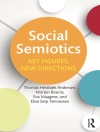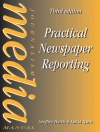This book explores the Irish Traveller community through an ethnographic and folk linguistic lens. It sheds new light on Irish Traveller language, commonly referred to as Gammon or Cant, an integral part of the community’s cultural heritage that has long been viewed as a form of secret code. The author addresses Travellers’ metalinguistic and ideological reflections on their language use, providing deep insights into the culture and values of community members, and into their perceived social reality in wider society. In doing so, she demonstrates that its interrelationship with other cultural elements means that the language is in a constant flux, and by analysing speakers’ experiences of language in action, provides a dynamic view of language use. The book takes the reader on a journey through oral history, language naming practices, ideologies of languageness and structure, descriptions of language use and contexts, negotiations of the ‘authentic’ Cant, and Cant as ‘identity’. Basedon a two-year ethnographic fieldwork project in a Traveller Training Centre in the West of Ireland, this book will appeal to students and scholars of sociolinguistics, language in society, language ideology, folk linguistics, minority communities and languages, and cultural and linguistic anthropology.
Зміст
Chapter 1: Introduction: Setting the Scene.- Chapter 2: Traveller Culture in Transition.- Chapter 3: When is it Used? – The Role of Cant within Traveller Culture.- Chapter 4: What is it Called? – Naming Practices and Folk Classifications of Cant.- Chapter 5: Folk Views on the Structure and Formation of Cant.- Chapter 6: Language Ideology and Traveller Identity.- Chapter 7: Conclusion.
Про автора
Maria Rieder is Lecturer in Sociolinguistics at the University of Limerick, Ireland. Her research is focused on discursive constructions of social and economic inequality. She has published on issues of minority communities and languages, economic discourse in the press, social movements and intercultural communication, specifically focusing on the role of language in the production of power differences and social conflict.












